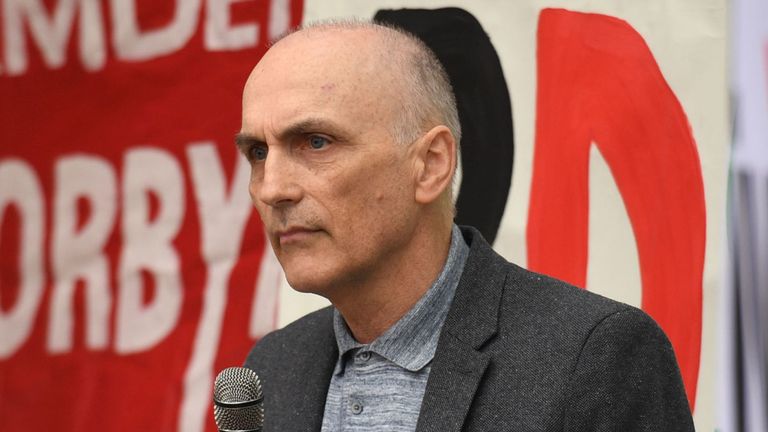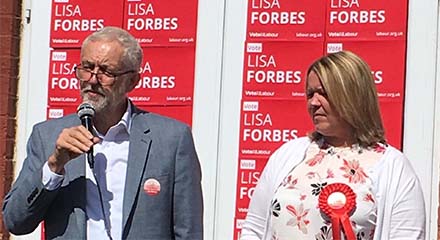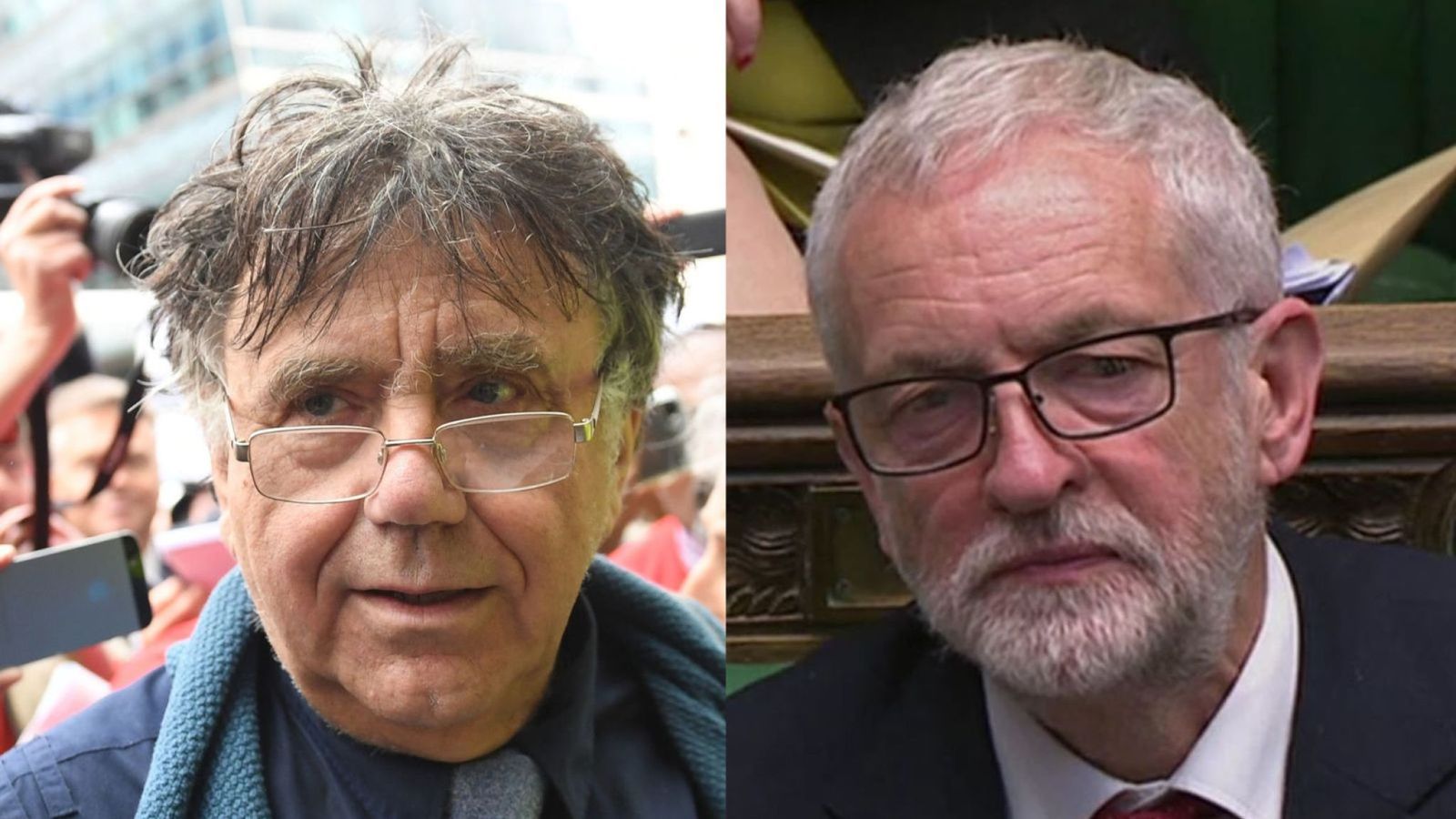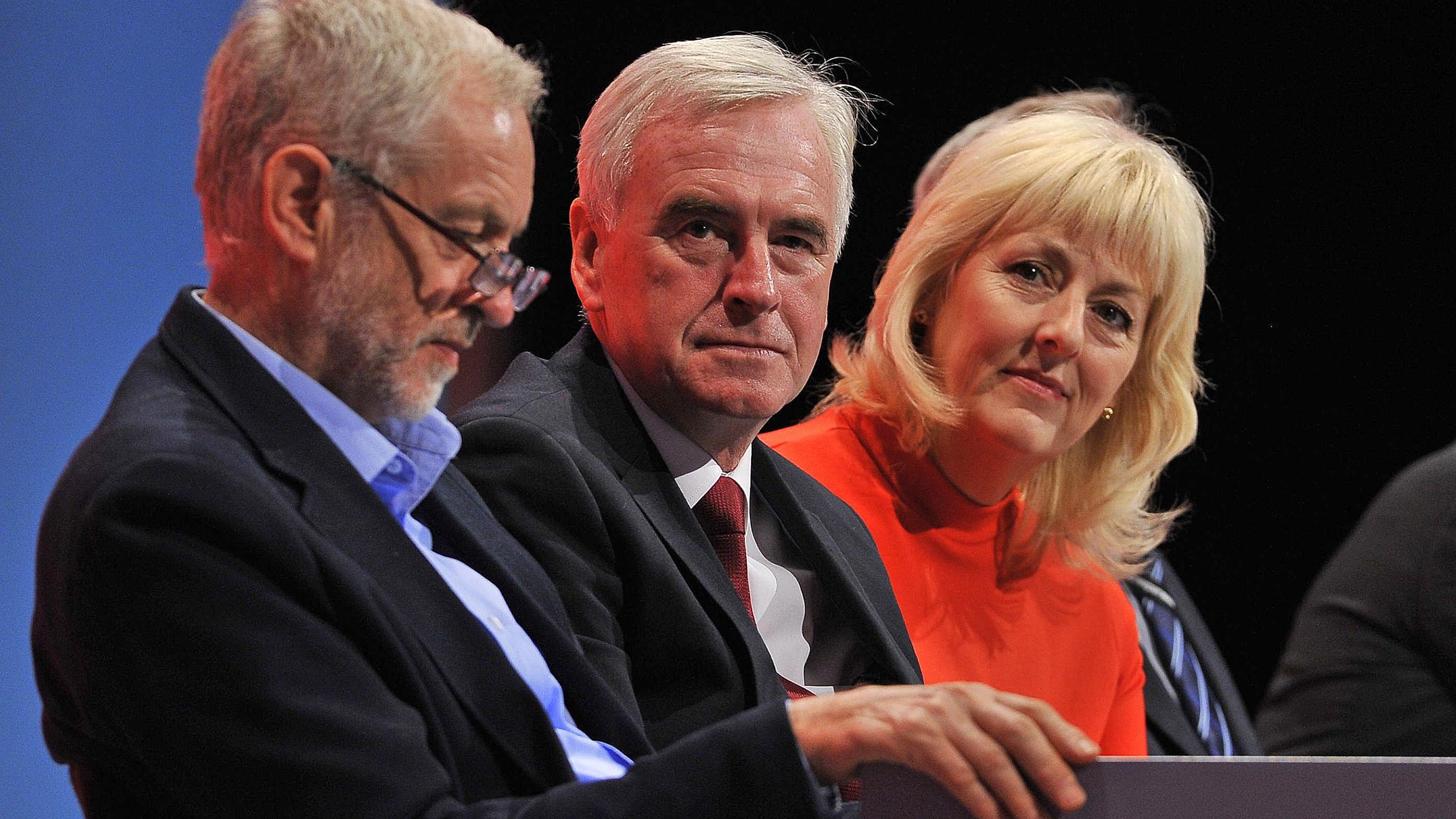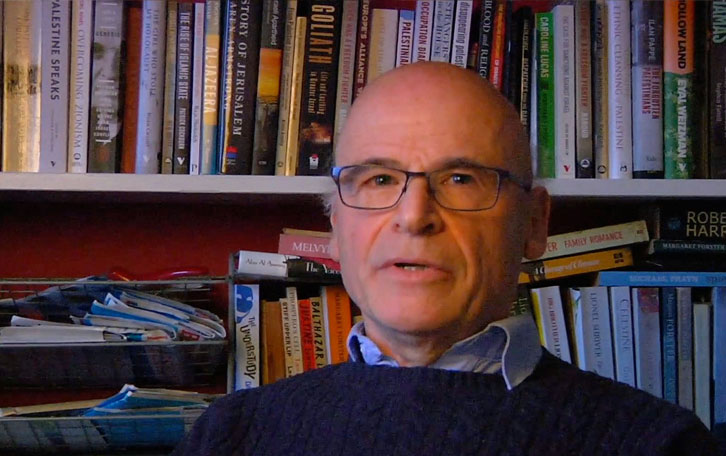The (temporary) reinstatement of Chris Williamson has riled the witch-hunters, writes Carla Roberts. Now we must ensure that the decision to introduce the reformed trigger ballot process is used to drive them out
On June 26 pro-Corbyn MP Chris Williamson was reinstated as a Labour member, following a suspension that lasted exactly four months. [UPDATE: Two days later, he was suspended again. Check out the website of Labour Against the Witchhunt on how you can protest against this]. A three-person panel from the party’s national executive committee issued him with a formal warning about his behaviour – not least his totally accurate statement that the party had been “too apologetic” over claims of anti-Semitism. But the NEC’s anti-Semitism panel declined to take things further by referring comrade Williamson to the national constitutional committee, as it had been expected to do.
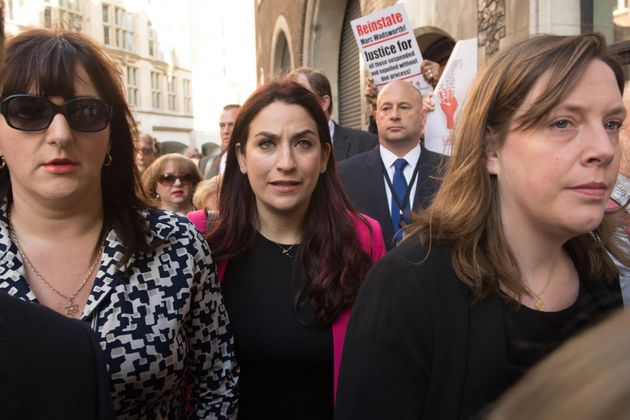
Ironically, as if to demonstrate the accuracy of Williamson’s claim that the party had “given too much ground” over utterly false anti- Semitism allegations, Labour MP Ruth Smeeth, who is chair of the rightwing Jewish Labour Movement’s parliamentary group, said that he had “demonstrated a pattern of behaviour over a period of many months, seemingly seeking to intentionally undermine, marginalise and harass the British Jewish community and Jewish Labour Party members, which has continually brought the Labour Party into disrepute”.
She added:
“The fact the NEC disputes panel has today ignored the recommendations of Labour Party staff, to let him off with a slap on the wrist, is simply appalling. It’s no surprise that the Labour Party is being investigated by the EHRC for institutionalised anti-Jewish hatred. I’m truly disgusted that he’s being readmitted to the Labour Party.”
The fact that Equality and Human Rights Commission has been asked to investigate Labour for “institutionalised” anti-Semitism, and that Smeeth can make such disgraceful accusations against Williamson, clearly illustrates that the party has in fact given far too much ground to people who come out with such outrageous lies.
So does this represent a sea-change in the attitude of Jeremy Corbyn and those around him? Not necessarily. But it certainly strikes a blow against the right – at a time when general secretary Jennie Formby has just indicated that the long awaited reform of the trigger ballot process, allowing Constituency Labour Parties the possibility of deselecting their sitting MP, is now to be implemented. In another irony, comrade Williamson was before his suspension prominent in the campaign to help democratise the party by holding MPs to account.
Trigger ballots
On June 23 Formby wrote to all sitting Labour MPs “to ask you to inform the Labour Party if you wish to remain a candidate at the next general election”. MPs have until July 8 to reply. If they answer ‘no’, then a full selection process between different candidates begins (with the usual restrictions: for example, all-women short lists). If the sitting MP replies ‘yes’, however, the local CLP can organise a trigger ballot – which, after its reform agreed at last year’s conference, now gives members for the first time in almost 30 years a realistic chance of getting rid of an unsatisfactory sitting MP.
Rightwingers have already criticised the letter as the beginning of their “purge” from the party. Jim Fitzpatrick, MP for Poplar and Limehouse, was the first to huffily declare on Twitter that he will not stand again, while Ian Austin MP tweeted: “Decision time for Labour MPs. In their hearts the vast majority know Jeremy Corbyn is unfit to lead our country, so are they really going to knock on doors and ask people to make him prime minister?” May those two careerists be followed out of the door by many, many more. We would prefer it all the vile Blairites and warmongers were booted out of the party by an active local membership, but we really do not mind if they jump ship beforehand.
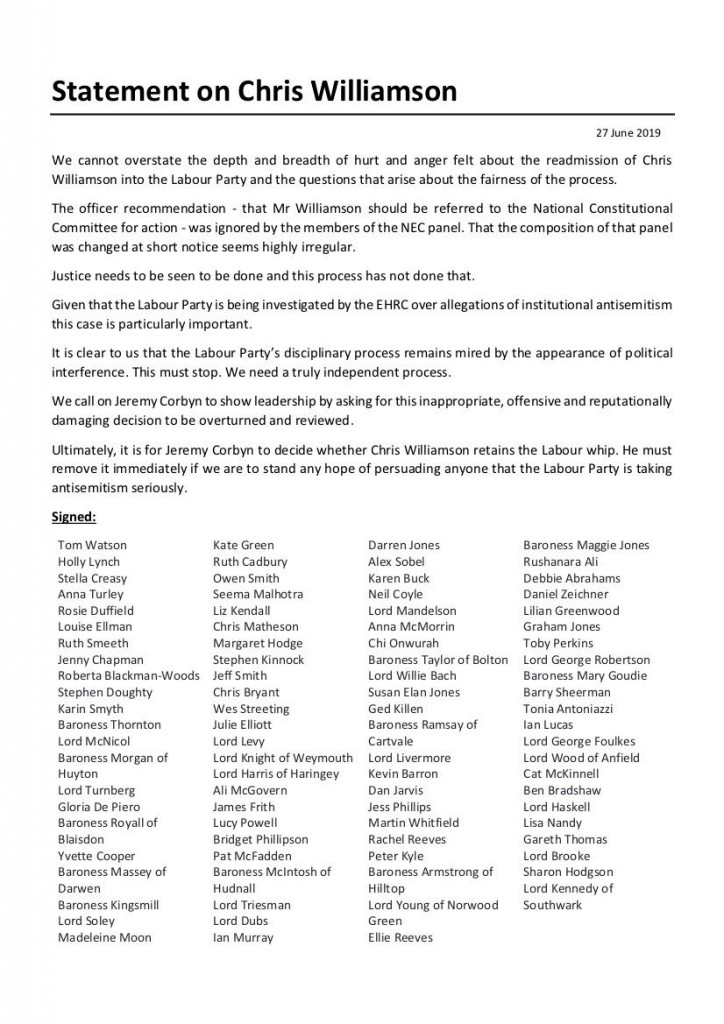
Interestingly enough, some of the most zealous Corbyn critics are keeping suspiciously quiet for the moment – among them Tom Watson, Margaret Hodge, Jess Phillips and Stella Creasy. We presume they are engaged in some form of deliberation – and splitting from the party will no doubt be one of the options they are discussing. But the embarrassing fate of Chuka Umunna and his merry band of losers will certainly have come as a strong discouragement, at least for now. Even if Watson took a very large number of MPs out behind him the chances are he would end up the same way. Given the first past the post electoral system, they would have very little chance of getting re-elected – unless they did a deal with the Liberal Democrats or Tories. And their career is very dear to these people.
So it seems that – at least in the short term – Watson and co are trying to keep their heads down in order to avoid deselection. Last week, Watson’s Future Britain group organised a meeting in parliament, entitled ‘Incumbency and campaigning’, which was designed to “give colleagues the chance to share their local strategies for preparing for trigger ballots”. We are guessing that matters like ‘How to stop seeing your position as an MP merely as a career move’ or ‘How to stop constantly knifing Jeremy Corbyn in the back’ were not high on the agenda.
But these are the kind of issues that loom large in local CLPs and we doubt that many members will be fooled by any of the dumb survival ‘strategies’ Tom Watson et al come up with (perhaps most obvious among them the recent discovery of ‘women’s issues’ by the aforementioned Stella Creasy and Jess Phillips). At least we know what Future Britain is supposed to be good for, now that we have seen its first concrete policy: ‘Save your seat’.
There will probably be attempts by the right to delay and cancel meetings, so that branches cannot actually launch trigger ballots. Watson has already used that tactic to prevent his own West Bromwich East CLP from discussing the proposal to change from general-committe to all-members meetings. Apparently, there was “no urgent business”, as the CLP chair, Simon Hackett, informed members when cancelling the meeting – did we mention he happens to work for Watson? This cancellation also, outrageously, robbed members of their right to select delegates to conference (so now those rightwingers elected last year will get to go again – simple!).
It is of utmost importance that Labour Party members up and down the country start getting seriously organised for trigger ballots now, if they have not done so already. This pressure from below is also needed to ensure that the reform will be fully implemented and that the leadership does not pull back at the last moment.
This remains a real danger. CLPs have yet to receive a full timetable and written guidelines from Labour HQ. There is still the possibility that, perhaps, the devil will be in the detail.
The fact that it took almost a year to implement the rule change – and six months for Formby to produce guidelines after she was commissioned to do so “urgently” by the NEC back in January – is an indication of how controversial this reform is, even for Jeremy Corbyn and his allies. The leadership has until recently tried to avoid implementing the rule change (despite the fact that it originated from the leadership). And it has to be said that it does somewhat jar with Corbyn’s four-year-campaign of trying to appease the rightwing saboteurs in the party, rather than take them on openly.
We can only hope that he and his allies have finally understood that there can be no peace, no ‘unity’ with the right. Thousands of members have been sacrificed in this campaign, as the right has suspended, expelled and smeared as ‘anti-Semites’ many of the most ardent Corbyn supporters. It would indeed be high time for the leadership to make a bold move against the right.
In this context it is interesting that it was the NEC officers meeting on June 24 which “agreed the procedural guidelines for reselection of sitting members of parliament” – and not a full meeting of the NEC. The majority of NEC officers can be described as pro-Corbyn, with only three of the eight officers being on the right (deputy leader Tom Watson, NEC chair Wendy Nichols from Unison and Cath Speight of the GMB union, who is the chair of the national policy forum). In meetings of all 39 members of the NEC, however, Corbyn does not have an outright majority and on some issues his supposed ‘allies’ like Jon Lansman are known to have let him down (for example, over Corbyn’s unsuccessful attempt to include a ‘waiver’ when the NEC adopted the International Holocaust Remembrance Alliance’s so-called ‘definition’ of anti-Semitism).
It is not inconceivable that the next meeting of the full NEC in July might decide to overturn some of the decisions taken by the NEC officers. Or they might decide to delay the publication of a timetable … until it is too late, perhaps? In the snap election of 2017, CLPs were told that the sitting MP would simply remain in place, as there was “no time” for a selection process. In our view, that was a huge political mistake, as the Parliamentary Labour Party has been at the heart of the coup against Corbyn. But we are not yet certain that, despite comrade Williamson’s reinstatement, he and his allies have actually learned that lesson.
Reform
We should also remember that the reform of the trigger ballot was only moved in order to stop the far more democratic system of mandatory reselection (aka open selection) from being adopted at last year’s conference. This issue has been at the heart of the fight between the left and the right of the party for many decades.
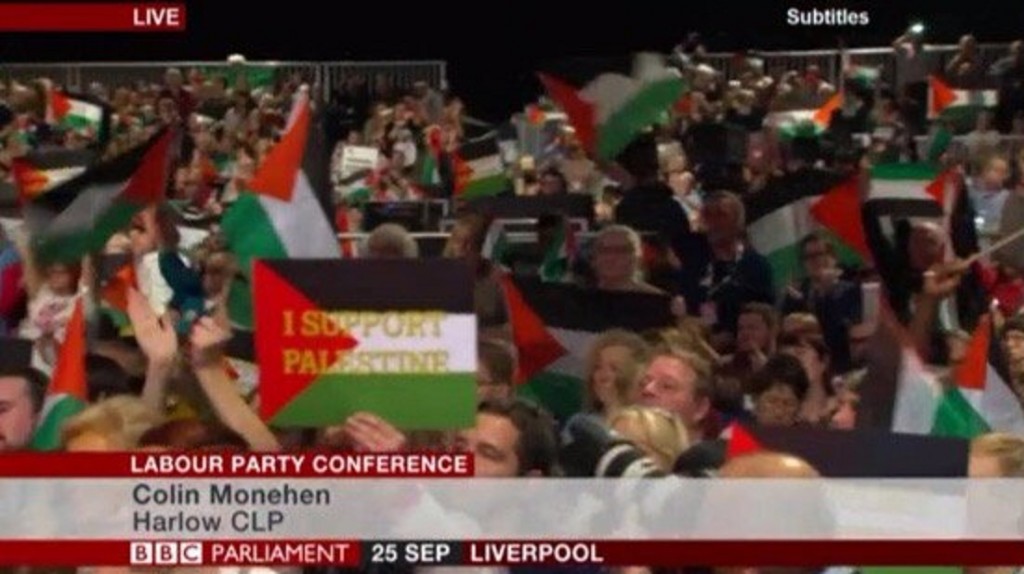
Trigger ballots were first introduced by Neil Kinnock in the early 1990s as a means of abolishing the much more democratic system of mandatory reselection (under which sitting MPs had to be specifically approved and any challenger rejected – a system which existed in the party in different forms for about 10 years previously), while simultaneously giving the system a veneer of ‘democracy’.
But, in reality, this method was always rigged: it made it almost impossible to get rid of a sitting MP, as locally affiliated unions and ‘socialist societies’ held a huge amount of power. Until last year, a democratic selection process between different candidates could only take place if a minimum of 50% of all the local Labour branches and the local affiliates voted to challenge the sitting MP. As every branch and every affiliate had a single vote each (irrespective of their membership figures), this often gave a local union bureaucrat the same power as, say, a branch with 500 members. Most of the time, these affiliates used their power to retain the sitting MP – an arrangement which often reflecting the rather cosy relationship between them. Labour members frequently did not even know if a trigger ballot had taken place in their branch – they were not really interested, as it was quite rightly not seen as any kind of useful tool in the struggle between the left and the right in the party.
But all that changed at last year’s Labour conference in Liverpool. It was the threat of the reintroduction of the eminently democratic principle of an open contest between different prospective parliamentary candidates that forced the hand of the party leadership: over 95% of all conference delegates expressed their support for the proposed rule change known as ‘open selection’. As the party’s largest union affiliate, the Unite union, had also just reconfirmed its commitment to a system of mandatory reselection, it looked like the rule change would sail through conference. The unions count for 50% of total voting at conference, despite the fact that there are far fewer union delegates present than for CLPs – without the support of at least a proportion of them, it is very difficult for any motion to be passed.
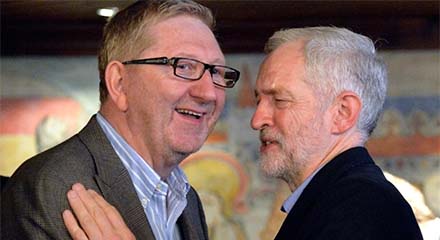
Alas, Jeremy Corbyn and his allies got cold feet. Fearing that the right wing in the party would once again escalate its ongoing slow coup against him if mandatory reselection was adopted, he bottled it. Instead of supporting the campaign – started by members supportive of his leadership – the Corbyn team suggested a reform of the trigger ballot instead. The first that delegates got to see of the proposed reform was at conference itself. No meaningful debate or any amendments were possible, as the proposal was part of the reform package produced in the wake of the ‘Democracy Review’ conducted by Katy Clark, which was presented to delegates on the basis of ‘take it or leave it’.
While delegates from local CLPs voted overwhelmingly in favour of opening up the conference agenda to allow a debate on this part of the proposed reform package, Corbyn asked Unite’s general secretary, Len McCluskey, to vote against. And, since all other unions (apart from the three delegates of Matt Wrack’s Fire Brigades Union) followed suit, the reforms were adopted without any chance to amend them. Len McCluskey got a lot of stick for claiming afterwards that, had the rule change on open selection been tabled, he would have asked his delegates to vote in favour of it – but in reality he was largely responsible for stopping it from being tabled.
Civil war
Conference delegates in Liverpool and members at home were understandably fuming about what they quite rightly saw as a huge betrayal. As opposed to Jeremy Corbyn and his allies, they seemed very much aware of the fact that, without dramatic changes to the composition of the PLP in favour of the pro-Corbyn left, the civil war in the party would remain badly tilted against them and could not be won.
Another direct attempt to depose Corbyn is improbable – simply because there is no doubt he would win again. But, even in the unlikely event of him getting the keys to No10, this would not stop the ongoing civil war against him by the right in and outside the Labour Party. The current crop of rightwing-dominated MPs will continue to sabotage and undermine him at every possible opportunity – he will remain a prisoner constrained by a hostile PLP. He would be lucky if he could convince these rightwingers to vote even for some of the demands in his ‘moderate’ For the many, not the few manifesto.
More importantly though, what if the US and/or the ‘international community’ called on their British ally to go to war against the ‘terrorists’ in Iran or Lebanon? Or back a military coup in Venezuela? Or condemn the desperate protests of Palestinians in Gaza? If Corbyn refused to do any of those things, he could easily be outvoted by his PLP … which would quite conceivably lead to a no- confidence vote … which could spell the swift end of prime minister Corbyn.
In reality, however, we know that the ruling class would do everything in its power to prevent a Corbyn-led government from actually happening. They know that, despite his constant moves to conciliate and accommodate the Labour right, he just cannot be trusted because of his past record. And, of course, there also remains the danger of the formation of a national government ‘to sort out Brexit’ – perhaps after a snap election. No doubt, Jeremy Corbyn would not be called up for this dream team to be forged, but there are plenty of current Labour MPs who would gladly join such an endeavour.
The PLP remains the key problem for Corbyn, in other words. He cannot achieve anything much if he remains controlled by these rightwingers. The reformed trigger ballot does not make it as feasible to remove rightwing MPs as mandatory reselection would – but it makes getting rid of the biggest traitors a real possibility.
No doubt, most of the new crop of candidates selected in this process will be on what can charitably be described as the soft left of the party, with many no doubt being pushed by Momentum’s witch-finder general, Jon Lansman. In other words, these deselections can only be the first step in the campaign to radically transform Labour.
How it works
If the system is implemented, as agreed at the 2018 conference (which is not yet certain), we can look forward to the long overdue clearing out of many of the careerists, Blairites and warmongers that have been hogging Labour’s parliamentary benches for decades.
Every party member should familiarise themselves with the rules. We think it would be a good idea to hold trigger ballots everywhere, including in seats where members are happy with their MP and actually do not aim to replace them – that would show that MPs who actually represent the wishes of the local membership have nothing to fear from a democratic selection process. It would also be a step into the direction of reintroducing the much more democratic and transparent mandatory reselection of all sitting MPs.
- The 2018 Labour conference voted to introduce two separate trigger ballots: one for all the branches of a CLP; another for all local affiliates (trade unions, socialist societies, cooperative organisations).
- All sitting MPs have until July 8 to reply to Jennie Formby’s question as to whether they “wish to remain a candidate at the next general election”.
- If the sitting MP replies ‘no’, then a democratic selection process begins. If the MP replies ‘yes’, the CLP will organise two trigger ballots:
- Local party members will meet in their branches and will be asked to vote for or against retaining the sitting MP as the only candidate. A simple majority will decides whether the branch is counted towards a ‘yes’ or ‘no’ vote.
- Local affiliates (unions and other organisations) – most of whom will probably not hold a democratic vote on the question – will also have one vote each in the CLP.
- If a minimum of 33% of a CLP’s branches or 33 % of the CLP’s affiliates vote ‘no’ to retaining the sitting MP, a full selection process will start – ie, a democratic contest between different candidates, including the sitting MP. Only full Labour members will have a vote in this stage of the process.
For example, if a CLP has 10 branches and 10 affiliates, either four LP branches or four affiliated organisations have to vote ‘no’ when asked if they want to retain the sitting MP in order to trigger a full selection process.
